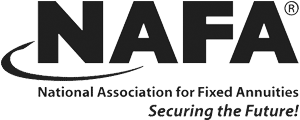
Discover how tariffs impact the economy, stock market, and your retirement investments.
As we move through 2025, many people - especially retirees and those nearing retirement - are hearing a lot about tariffs and wondering what they mean for the economy, the stock market, and their investments. With the current administration announcing plans to introduce or significantly increase tariffs on imported goods, the effects will likely be felt in a variety of ways. But what does that really mean for you?
To understand the potential impact, let’s start with the basics.

What Is a Tariff?
A tariff is essentially a tax that the government places on imported (or sometimes exported) goods. These taxes serve as a tool for regulating foreign trade, and they can be used for different purposes, including:
- Generating Revenue – Tariffs provide income for the government by taxing goods coming into the country.
- Protecting Domestic Industries – By making imported goods more expensive, tariffs encourage consumers to buy American-made products instead.
- Negotiating Trade Agreements – Tariffs can be used strategically in international trade discussions, either to encourage better deals or to retaliate against other countries' trade policies.
How Do Tariffs Affect Prices and the Economy?
Tariffs can lead to several economic changes, including:
- Higher Prices on Imported Goods – When tariffs increase, the cost of imported goods rises, and those costs often get passed down to consumers.
- Changes in Trade and Diplomacy – Other countries may respond with their own tariffs, leading to trade disputes or disruptions in global supply chains.
- Shifts in Consumer Choices – As imported goods become more expensive, shoppers may opt for domestic alternatives, which can benefit U.S. businesses but may also limit choices and raise prices overall.
- Higher Costs for U.S. Companies – Many American manufacturers rely on imported parts to make their products. When tariffs raise the cost of those parts, companies either absorb the loss or pass it on to consumers.
What Do Tariffs Mean for the Stock Market?
For investors - especially those in or nearing retirement - the biggest short-term effect of tariffs is uncertainty. When tariffs are announced, proposed, or changed frequently, the stock market can become volatile. Investors and analysts often struggle to assess how tariffs will impact specific industries and businesses, leading to fluctuations in stock prices.
Uncertainty in the market can cause a temporary dip as investors become cautious, selling off stocks or holding back on new investments. If tariffs are reversed or modified, market sentiment may shift again, adding to the unpredictability. This uncertainty makes it challenging to determine how a particular company or industry will be affected until the details are finalized.
Tariffs may have a potentially significant impact on the economy, which could affect the investing markets as well, Dave Bensch, CFP®, EA and Stephen L. Hanley, CPM™, CKA™, Chief Investment Strategist, break down the current state of the market, recession possibilities, and what investors should focus on during uncertain times.
Staying Focused on Long-Term Investing
While short-term volatility can be unsettling, particularly for retirees who rely on their investments, it’s important to stay focused on fundamentals. Economic headlines and political shifts will always create waves in the market, but the core principles of investing remain the same:
- Look at the True Value of a Company – Is this a solid business with long-term potential?
- Maintain a Long-Term Perspective – If you plan to hold an investment for 10 years or more, temporary tariff-related fluctuations may have little impact on your overall financial health.
- Diversify Your Portfolio – Having a mix of investments across industries and asset types can help cushion the effects of market volatility.
How Might Tariffs Impact My Local Economy?
For residents of Perrysburg, Toledo, and the surrounding areas, tariffs can have a significant effect on local businesses, jobs, and overall economic health. With our region’s strong ties to manufacturing, automotive production, and logistics, any shifts in trade policy can be felt deeply.
- Impact on Manufacturing – Northwest Ohio has a robust manufacturing sector, including auto suppliers and steel production. Tariffs on raw materials like steel and aluminum could drive up costs for local manufacturers, potentially leading to higher prices or job cutbacks.
- Effects on Small Businesses – Many small businesses in Perrysburg and Toledo rely on imported goods or components. Increased costs could mean higher prices for consumers or thinner profit margins for business owners.
- Job Market Changes – As companies adjust to new tariffs, we may see shifts in hiring patterns, with some industries scaling back while others, such as domestic production, might experience growth.
- Cost of Living Increases – If tariffs lead to higher prices on everyday goods, residents may find that their cost of living rises, affecting spending habits and local economic activity.
Final Thoughts
Tariffs can create economic ripples that affect everything from the prices you pay at the store to the performance of your investments. While these policy changes may cause short-term market turbulence, they don’t change the fundamental principles of sound investing. By staying informed, maintaining a well-balanced portfolio, and focusing on long-term financial goals, you can navigate these economic shifts with confidence.
If you have concerns about how tariffs might impact your retirement portfolio, consider speaking with one of our advisors to ensure your investment strategy aligns with your needs and risk tolerance.
Providing retirement planning services to Northwestern Ohio including communities of Toledo, Bowling Green, Sylvania, Perrysburg, and Findlay.
Featured On








Fourth Dimension Financial Group
27121 Oakmead Dr. Suite B
Perrysburg, OH 43551
Phone: 419-931-0704
Email: dave@fourthdimensionfinancial.com




